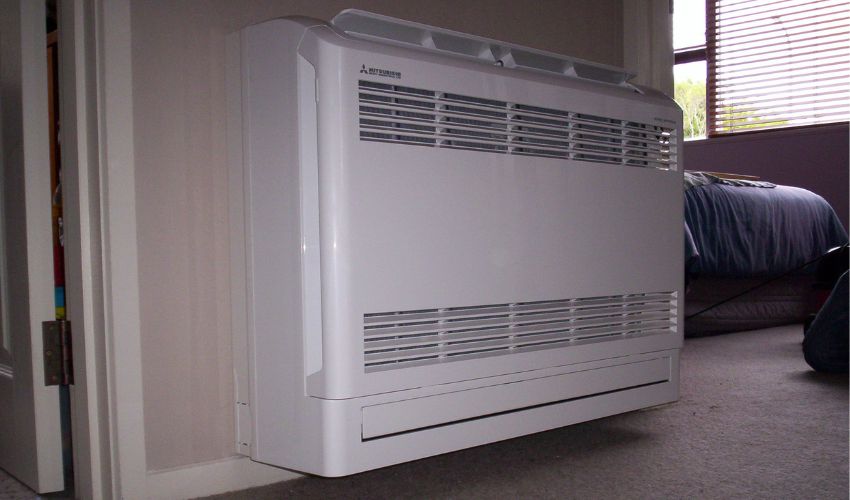Don’t overwork your air conditioner, whether it’s a whole house or a single-room unit. Regular air conditioner maintenance is required for any AC unit to perform effectively and efficiently over its years of use. Neglecting basic maintenance ensures that air conditioning performance deteriorates while energy consumption rises.
An important aspect of air-con maintenance is understanding how it works. You cannot expect to maintain something properly without knowing what it is supposed to do and how.
How Your AC Works
In its most basic form, the air conditioning process entails two simultaneous processes, one within the home and one outside the home. Warm air gets cooled as it passes the cold cooling coils filled with refrigerant – also referred to as the “cold side” of the AC system.
The refrigerant gas is pressurized outside the home, often referred to as the “hot side” of the AC system, before entering a huge coil in the outdoor unit. As the refrigerant returns to a liquid, heat is expelled outdoors, and a big fan draws exterior air through the outdoor coil, rejecting the heat collected from the home.
Consequently, heat and humidity are removed from interior air, cold air is returned to the home, and heat and humidity escape the home in a continual cycle.
Maintenance Tips
Most people choose to leave the maintenance up to professionals, but if you prefer to maintain your own AC, then have a look at our tips below.
Filters
The most crucial part of maintaining your air conditioner’s performance is changing or cleaning its filters regularly. Clogged or dirty filters restrict the airflow and dramatically diminish a system’s efficiency. Furthermore, dirt bypasses the filter and enters the evaporator coils if the airflow is impeded, reducing its heat-absorbing ability.
Replacing dirty, clogged filters with clean ones can reduce the energy usage of your air conditioner. Filters for central AC units are normally positioned along the return duct’s length. Filters are generally found in ceilings, walls, and the AC itself.
Filters are positioned in the grilles of an air conditioner that face into the room. Some filters may be reused, while you must replace others. They come in a range of shapes and sizes and have different levels of efficiency.
Cleaning or replacing the air conditioning system’s filters during warmer seasons needs to happen every month or two. If the AC unit is in continual use, is often subjected to dust, or you have fur-bearing animals in your house, the filters may need more frequent care.

Coils
Dirt collects on the evaporator and condenser coils of an air conditioner. This dirt blocks the regular airflow and surrounds the coil, which lowers its capacity for absorbing heat. Check your coils annually and clean them to eliminate this problem.
If the external environment is dusty or there is greenery around, outdoor condenser coils can become exceedingly unclean. The condenser coil is plainly visible, and you can detect if dirt has accumulated on its fins. You should keep debris and dirt away from your condenser unit.
Debris and dirt might come from dryer vents, fallen leaves, and lawnmowers. Cleaning the space around the coil, cleaning any dirt, and pruning the plants around the condenser allows for optimum ventilation.
Covers
Covering the outdoor unit with a central air conditioner will protect the unit from winter weather and debris. This is especially important in the winter months to protect your unit from outside elements and extend its lifespan. Covering it throughout the year also makes the cleaning maintenance on the coils, which we explained above, easier.
You can buy specially made covers from retailers and manufacturers or build your own DIY covers for outdoor AC units. AC unit covers can be made from any material you choose, but robust plastic or wooden covers are the most common options.
Fins
The metal fins on condenser and evaporator coils are readily bent and can obstruct airflow. Air conditioning wholesalers sell “fin combs” (tools to comb fins into their original shape).
Drains
Pass a strong piece of wire through the unit’s drain passages every now and then. When the drain pipes get clogged, the unit’s ability to reduce humidity is compromised, and any extra moisture that builds up can create stains on your walls and carpets.
Connections and Leaks
Inspect the seals between the AC unit and your window frame at the start of each cooling season to verify it makes contact with the unit’s metal casing. Moisture can cause this barrier to deteriorate, enabling cold air to exit your home.
Contact An Expert
Hire a professional service specialist if your AC requires more work than described in the above-mentioned routine maintenance, such as when it fails to lower the inside temperature to a reasonable level. Your air conditioning system will be diagnosed and repaired by a skilled technician.
Table of Contents